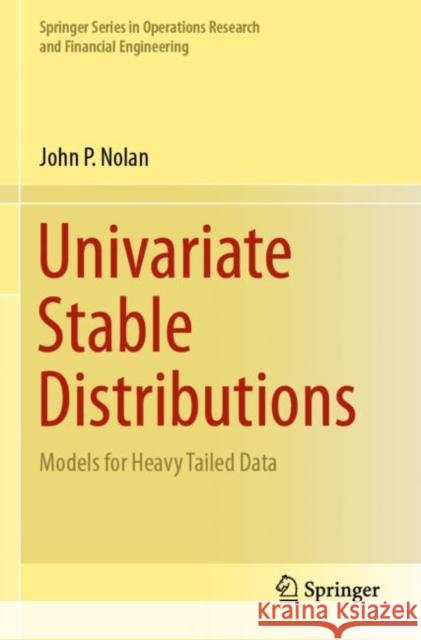Univariate Stable Distributions: Models for Heavy Tailed Data » książka
topmenu
Univariate Stable Distributions: Models for Heavy Tailed Data
ISBN-13: 9783030529178 / Angielski / Miękka / 2021
Univariate Stable Distributions: Models for Heavy Tailed Data
ISBN-13: 9783030529178 / Angielski / Miękka / 2021
cena 201,24
(netto: 191,66 VAT: 5%)
Najniższa cena z 30 dni: 192,74
(netto: 191,66 VAT: 5%)
Najniższa cena z 30 dni: 192,74
Termin realizacji zamówienia:
ok. 16-18 dni roboczych.
ok. 16-18 dni roboczych.
Darmowa dostawa!
This textbook highlights the many practical uses of stable distributions, exploring the theory, numerical algorithms, and statistical methods used to work with stable laws. Because of the author’s accessible and comprehensive approach, readers will be able to understand and use these methods. Both mathematicians and non-mathematicians will find this a valuable resource for more accurately modelling and predicting large values in a number of real-world scenarios.
Beginning with an introductory chapter that explains key ideas about stable laws, readers will be prepared for the more advanced topics that appear later. The following chapters present the theory of stable distributions, a wide range of applications, and statistical methods, with the final chapters focusing on regression, signal processing, and related distributions. Each chapter ends with a number of carefully chosen exercises. Links to free software are included as well, where readers can put these methods into practice.
Univariate Stable Distributions is ideal for advanced undergraduate or graduate students in mathematics, as well as many other fields, such as statistics, economics, engineering, physics, and more. It will also appeal to researchers in probability theory who seek an authoritative reference on stable distributions.











